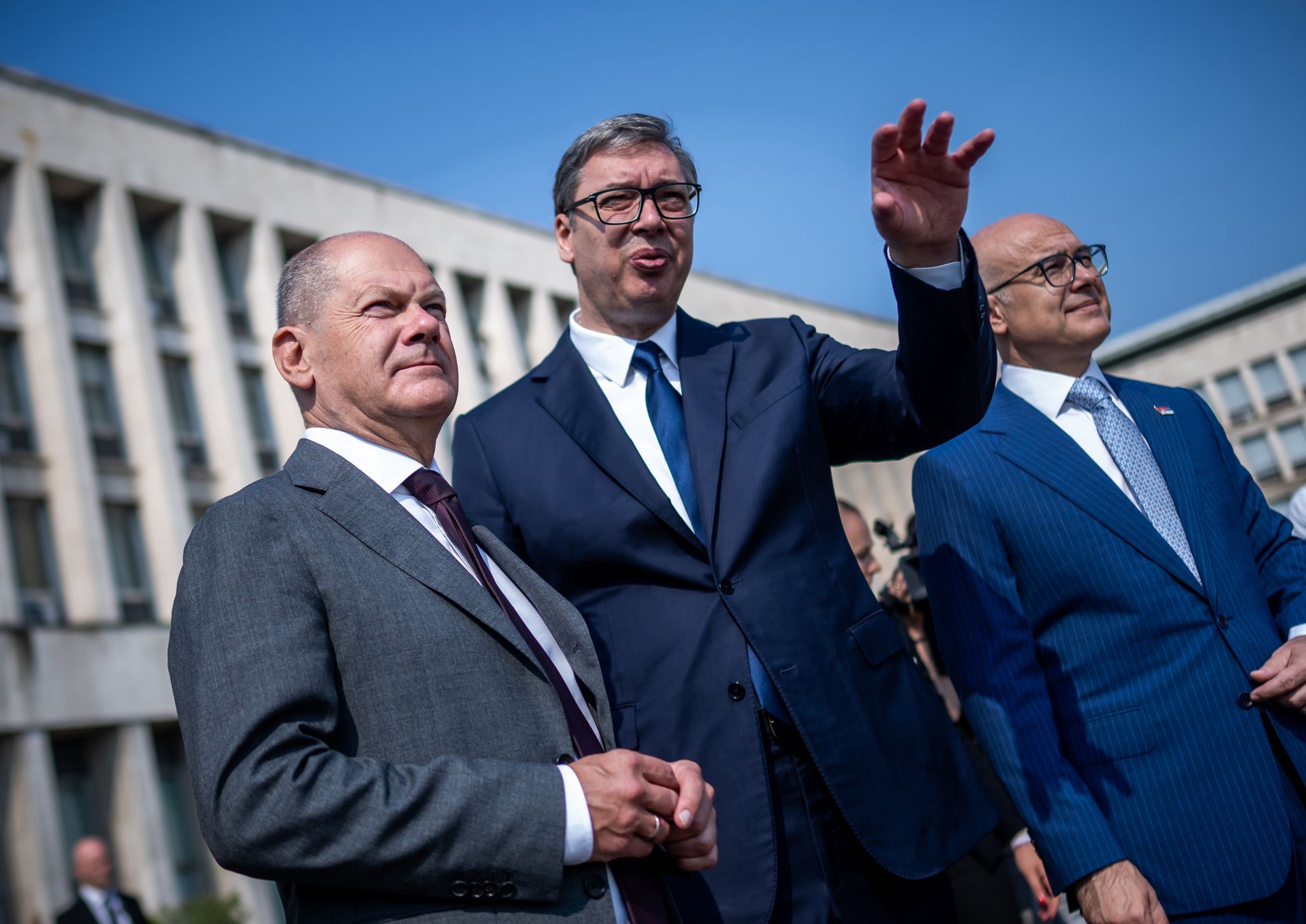Environmentalists Raise The Alarm As European Union, Serbia Sign Landmark Lithium Pact
... It’s ‘Death Sentence For Region’ Says Serbia’s Opposition Politician Jovanović Ćuta

By Edu Abade (with Agency report)
The European Union (EU) and Serbia, at the weekend, sealed a landmark agreement to cooperate on the establishment of a critical Lithium mine, with German Chancellor, Olaf Scholz, visiting Belgrade to sign the pact despite opposition from environmental activists, who have constantly spoken up against the impacts of extractive activities on the climate.
Scholz, Serbian President Aleksandar Vučić and European Commission Vice President Maroš Šefčovič signed a strategic partnership worth several billion Euros for the extraction of lithium in north-western Serbia.
A report by the German News Service (delivered by dpa) revealed that the mineral, which is essential in the production of renewable batteries, has in recent decades become one of the world’s most sought-after natural resources, with Serbia’s Jadar valley believed to hold Europe’s largest reserves.
Environmentalists have voiced concerns that the mine could contaminate vital water sources and impact local communities, but Scholz said the project would meet the “highest standards” of environmental protection.
“We will support this and will do our part to ensure that [environmental standards] are implemented,” Scholz said.
Šefčovic described the signing of the pact as a “historic day,” which could further deepen Serbia’s ties with the EU.
The country has had official candidate status for the union since 2012, but relations have soured in recent years due to Vučić’s authoritarian turn and his friendly relations with Moscow and Beijing.
Vučić also praised the agreement, describing it as “a turning point and a quantum leap into the future.”
To reduce Europe’s dependency on China, Scholz sees the agreement with Serbia as a chance to reduce Europe’s dependence on China as a source of critical raw materials.
The German chancellor arrived in Belgrade late on Thursday after attending a European Political Community summit in the United Kingdom. He was greeted by Vučić at the airport after his plane was escorted by Serbian fighter jets.
For Belgrade, meanwhile, the partnership could help to position the Serbian economy as a key pillar of Europe’s green transition, bringing revenue, investment and jobs. According to Vučić, the pact could be worth up to €6 billion ($6.5 billion).
Australian mining giant Rio Tinto has estimated that the region could produce up to 58,000 tons of lithium per year.
The figure would be enough to build 1.1 million electric vehicles, according to Serbian media reports, corresponding to around 17 percent of total European production.
Car manufacturers Mercedes-Benz and Stellantis are already negotiating a stake in the project with Rio Tinto.
The deal could represent a blow for China, which was reportedly interested in Serbia’s lithium deposits. President Xi Jinping visited Belgrade in May.
But with opposition from local activists, the lithium project has proved highly controversial across Serbia as opposition politician Aleksandar Jovanović Ćuta, who has led a number of environmental protests in Serbia, described the agreement a “death sentence” for the region.
Activists had planned a demonstration in front of the presidential palace in Belgrade during the ceremony, but the area was cordoned-off.
The German chancellor’s office has argued that involving German companies is the best way to ensure the mine is environmentally friendly.
The mine has also faced legal hurdles, with Serbia’s Constitutional Court recently overturning a temporary ban on the development of the project.
Critics have questioned the independence of the court, arguing that Vučić’s government has used it to ride roughshod over environmental protections.











